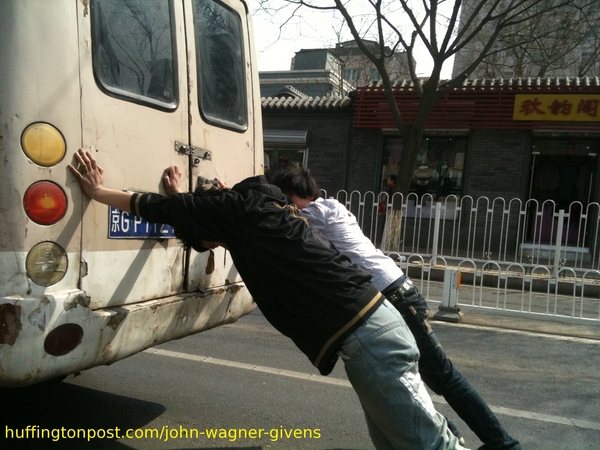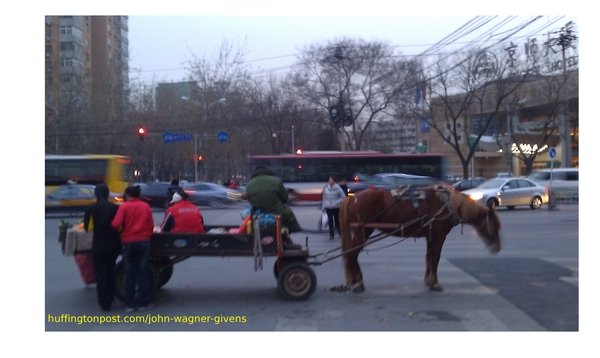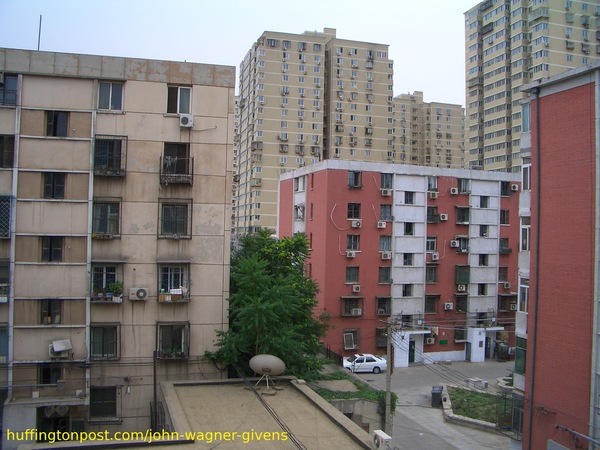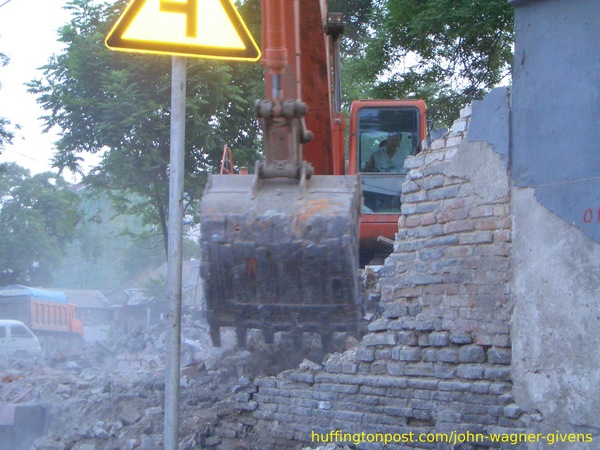
This January, residents of Beijing have been treated to record levels of air "pollution 45 times the recommended safety levels, causing widespread public outrage, grounded flights and leaving many with health problems housebound." Considering that Beijing's plans for addressing the issue were greeted with little enthusiasm, this blogger would like to offer another one: time to abandon Beijing. While this suggestion is offered less than seriously, there is a lot to dislike about Beijing and many of these factors, especially weather and transportation, contribute to Beijing's record-breaking levels of air pollution.
The weather is simply awful: oppressively hot and humid in the summer, freezing in the winter, sandstorms in the spring. There are usually only about six nice weeks around October. This means extra pollution from the need for heating or cooling almost all year, especially from coal.
Transportation is a mess. Endlessly widened roads have meant that "bicycle use in Beijing has dropped from about 60 percent in 1986 to 17 percent in 2010" and Beijing was rated the worst city in the world for traffic congestion in a recent survey. Beijing has the second longest subway system in the world, but with far fewer stations than New York or Paris, in many places this means the gaps between stations are far too large. Line 1, the heart of the system, is nightmarishly overcrowded because when it was built over 40 years ago it was designed for a miniscule ridership. Back then, only people with letters from their work units were permitted entry into the subway; now Line 1 suffers under a daily ridership of about 1.5 million.
Much of Beijing's transportation problem results from the fact that, long after most of the tenets of communism have been given up, the city remains divided up into huge blocks that harken back to communist work units. Despite the fact that most people live in small apartments in tall high-rise buildings, these are clustered in their own walled developments with few exits and separated from the next block by ridiculously wide roads. Popping over to a shop "just across the street" can be a 20-minute ordeal involving stairs to get under or over 12 lanes of traffic. These giant blocks also mean that addresses in Beijing are often incomprehensible.
Some of my closest friends in China are Beijingers, but their reputation for being rude and unfriendly is more or less justified. Beijingers are not bad people, they just live in Beijing, and that is enough to make anyone a little grouchy.
Of course, Beijing has a lot of history and important cultural sites, and these are fine for (and overrun by) tourists. But most of the pleasant historic neighborhoods have been destroyed, or worse yet, destroyed and then rebuilt as Disneyfied versions of themselves. This is in sharp contrast to Shanghai, where the old French Concession is still a tree-lined walker's paradise. Beijing's few remaining old neighborhoods are lovely places to live, which is why both high-ranking Chinese officials and foreign hipsters flock to them. They are probably the only bit of the city that should not be abandoned.
And, of course, for the privilege of living in what even a friend of mine who likes Beijing called a "post-apocalyptic unlivable hellscape," you can expect to pay prices that some reckon are higher than those in New York or London.
It might be too much to hope for the Chinese Communist Party to abandon Beijing as their capital, as many previous dynasties have done. But in all seriousness, I urge anyone with a choice, from companies opening offices in China to students going to learn Chinese, to pick another city. My favorites are the second tier costal cities: Dalian, Qiangdao, Ningbo, and Xiamen. But really, almost anywhere is more livable than Beijing.




